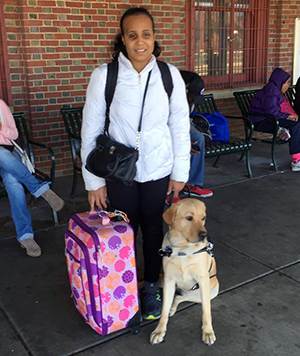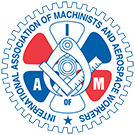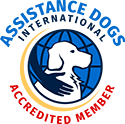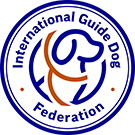
For Kassandra Hernandez, the decision to get a guide dog or not was her ultimate, “what-if?”
by Zachary Gittlen
In a recent interactive episode of the Netflix hit show, Black Mirror, viewers were asked to choose – through touch screen or TV remote – between a series of two “what-if” questions, allowing them to control how the plot unfolded and requiring them to consider how each decision might affect the ending of the show. For Kassandra Hernandez, the decision to get a guide dog or not was her ultimate, “what-if?”
Kassandra was born with Leber’s Congenital Amaurosis (LCA), which causes debilitating light sensitivity and extreme farsightedness. Living in Philadelphia, Kassandra found the big city presented big challenges for someone who is blind. Not only was navigating busy intersections and massive train stations with just a cane scary, her low vision caused her to walk cautiously slow, and as a result she became extremely apprehensive about getting out and about. Having heard that being part of a guide dog team can provide greater confidence, mobility and independence for people who are blind or visually impaired, Kassandra decided to look into it.
In 2015, Kassandra applied to Guide Dogs of America upon the advice of a friend. She was accepted into class #390 and immediately felt at home on campus, citing that it was a small, tight-knit community where she received the personal support and guidance she needed to grow with her new guide dog partner, Tagg. “The trainers were so attentive and the match they made was just incredible. Tagg and I instantly clicked. He’s my little kindred spirit. There’s such a bond and connection between us. We are so in sync that there are times it feels like he is reading my mind.”
Kassandra says it’s obvious that Tagg loves the work he does and that their bond is even stronger because of that. “Whenever Tagg hears me grab his training collar he enthusiastically sprints towards me. There’s nothing better than knowing that not only are we a great team together but that Tagg enjoys being out and about just as much as I do. In some of our pictures together it looks like he’s almost smiling. No matter what we do or where we go – if the situation is high stress or relaxed – Tagg’s tail is always wagging.”
Now back to the Netflix “what-if” scenario . . . what if Kassandra never got her guide dog, Tagg?
She may not have gone back to college to earn her teaching degree so she can become a teacher for people who are visually impaired. “Going to campus before Tagg was a struggle, not only is it a forty minute trip each way, it is crowded with students and large obstacles, with Tagg by my side it is so easy to get around, he doesn’t even get distracted by the food trucks.”
She may not have developed the confidence to run a 5k or half marathon, things she does frequently now. “I had a race in New Orleans with a very hectic schedule. We arrived the night before, got almost no sleep, and then went straight to the race. Tagg was an absolute rock star. New Orleans has so many smells and sounds and it is so crowded. Tagg was flawless the whole trip. I couldn’t have done it without him.”
She may not have joined a national goalball team. She wouldn’t have traveled with them to New York City, Washington D.C. Atlanta, Detroit, Indiana, or Puerto Rico competing (goalball, a mix of soccer and bowling, is a Paralympic sport for people who are blind). “Tagg gives me the confidence to be in a new place, because I know with him by my side I have the independence to go where I want.”
Some “what-ifs” are hard to quantify, but for Kassandra, “what if she never got Tagg?” is an easy one to understand. “Life without Tagg would be dull and unexciting, I wouldn’t be confident, I would be quiet, and oh…I wouldn’t laugh nearly as much.”







